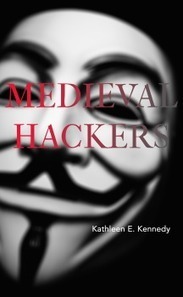The basic premise of Kathleen E. Kennedy’s intriguing volume Medieval Hackers is that modern computer hackers are essentially the inheritors of the medieval copyist and translators who sought to freely disseminate information from original sources through their “derivative texts,” which often also abridged, expanded, or altered information in their exemplars. More specifically, hackers can be identified with those late medieval transmitters of information who came into conflict with authorities when, starting especially in the mid-sixteenth-century, efforts were increasingly made to control, limit, or prohibit the free diffusion and distribution of certain text types, despite the fact that such unfettered free license had hitherto had been an accepted and integral part of European intellectual culture. While Kennedy begins by acknowledging in the very first sentence that “hackers are the last thing most people would associate with the Middle Ages” (1), she nonetheless manages to make a compelling argument for this bold parallel, developing the image of the “medieval hacker,” which she herself acknowledges as an “anachronistic title.” (4) The analogy ultimately succeeds, however, mostly thanks to her well-considered assessment backed up by convincing comparisons and persuasive references that demonstrate serious reflection and thorough academic rigorousness. She furthermore demonstrates expertise in the culture of both medieval textual transmission and modern information technology, as well as a host of other academic domains on which she relies to form and support her hypotheses.
Research and publish the best content.
Get Started for FREE
Sign up with Facebook Sign up with X
I don't have a Facebook or a X account
Already have an account: Login
on peer-to-peer dynamics in politics, the economy and organizations
Curated by
jean lievens
 Your new post is loading... Your new post is loading...
|










